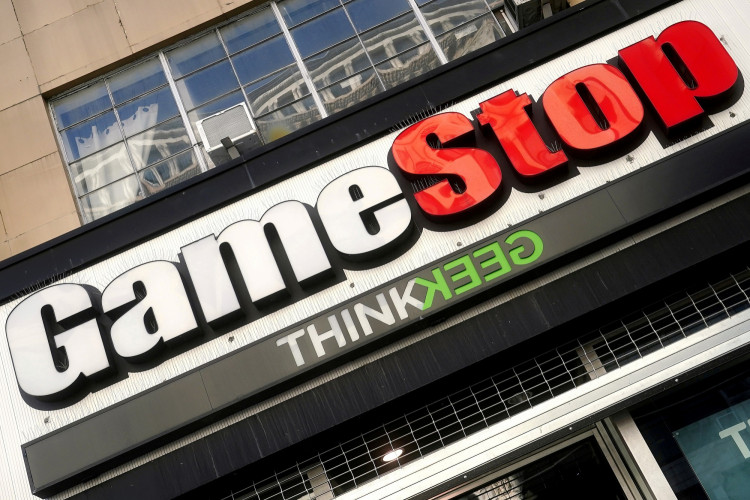GameStop's share price jumped by more than 80% to $168 per share in overnight after-hours trading following news of the exit of the company's chief financial officer.
Previous buying doubled the opening price to $44.70 per share.
The rally came just a few hours after GameStop's chief financial officer, Jim Bell, announced that he would be stepping down from his position. Bell said that he will officially resign March 26. Bell will be replaced by the company's current senior vice president, Diana Jajeh, who will serve as interim chief financial officer while GameStop looks for a permanent replacement.
According to sources with knowledge in the matter, Bell was forced to leave the company against his will. Sources said that the board of directors pushed him out after they expressed a lack of faith in his ability to reshape and turnaround the company.
GameStop said in a statement that it will be searching for a chief financial officer that is qualified to help accelerate its transformation. Sources said that GameStop is aiming to shift its focus from being a physical retailer to an online retailer.
When asked about Bell's departure from the company, a Gamestop representative said that the company is refusing to comment on the matter at this time. Bell became the company's chief financial officer in June 2019.
Since he took the position, GameStop has been struggling to keep afloat, suffering from declining sales and forced store closures. The coronavirus pandemic further reduced profits - forcing it to close down more than 400 stores worldwide.
The announcement of Bell's exit from the company comes less than a month after the stock skyrocketed to unprecedented heights. The artificially induced rally was fueled by Reddit community WallStreetBets.
Last month, GameStop's stock reached a high of $347.51 per share, a 1,915% jump from its price at the start of the year. The stock has since dropped to around $45 per share.
The incident resulted in massive public attention, with the company caught right in the middle of the internet-fueled movement against hedge funds and financial institutions.
Hedge funds mostly bet against the company given its struggles, shorting its stocks. The recent rally caused hedge funds that shorted the stock to lose billions of dollars, forcing some of them to request bailouts.





